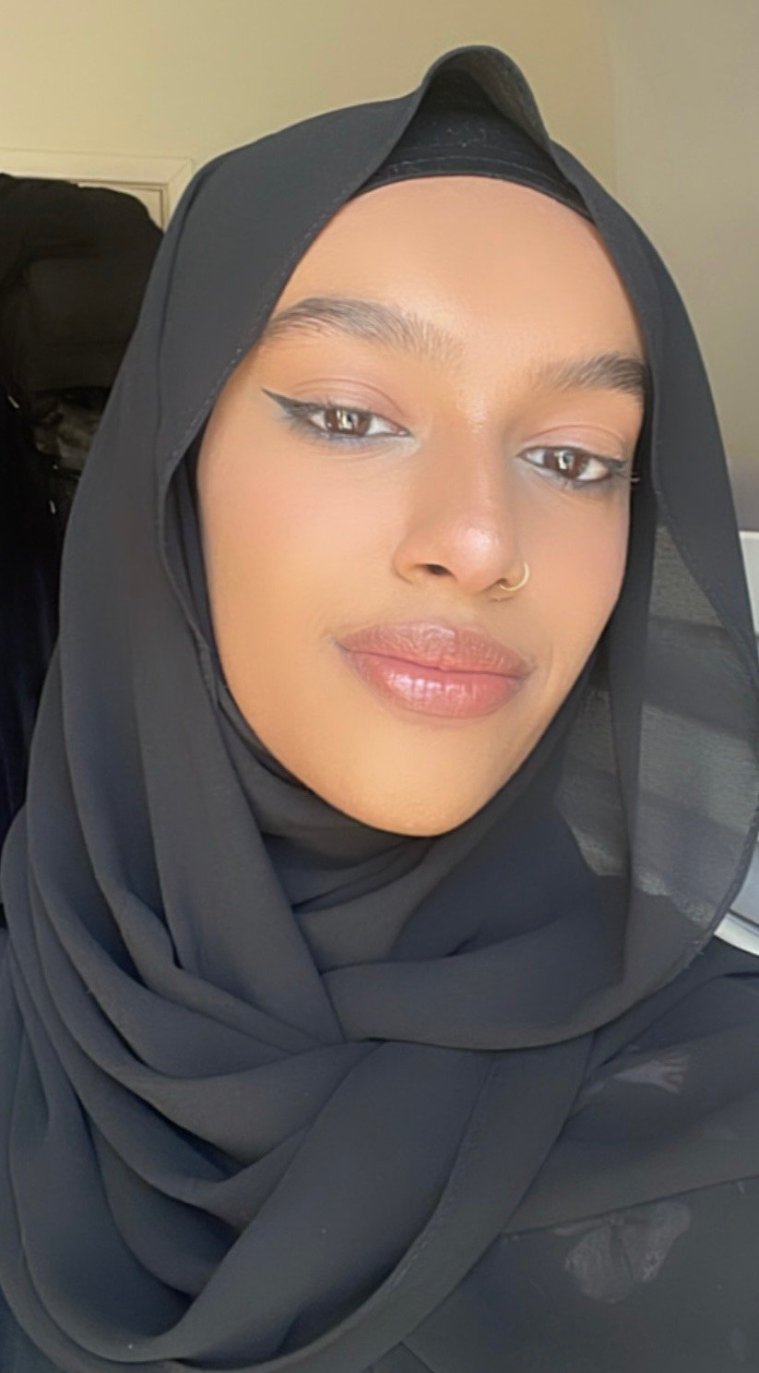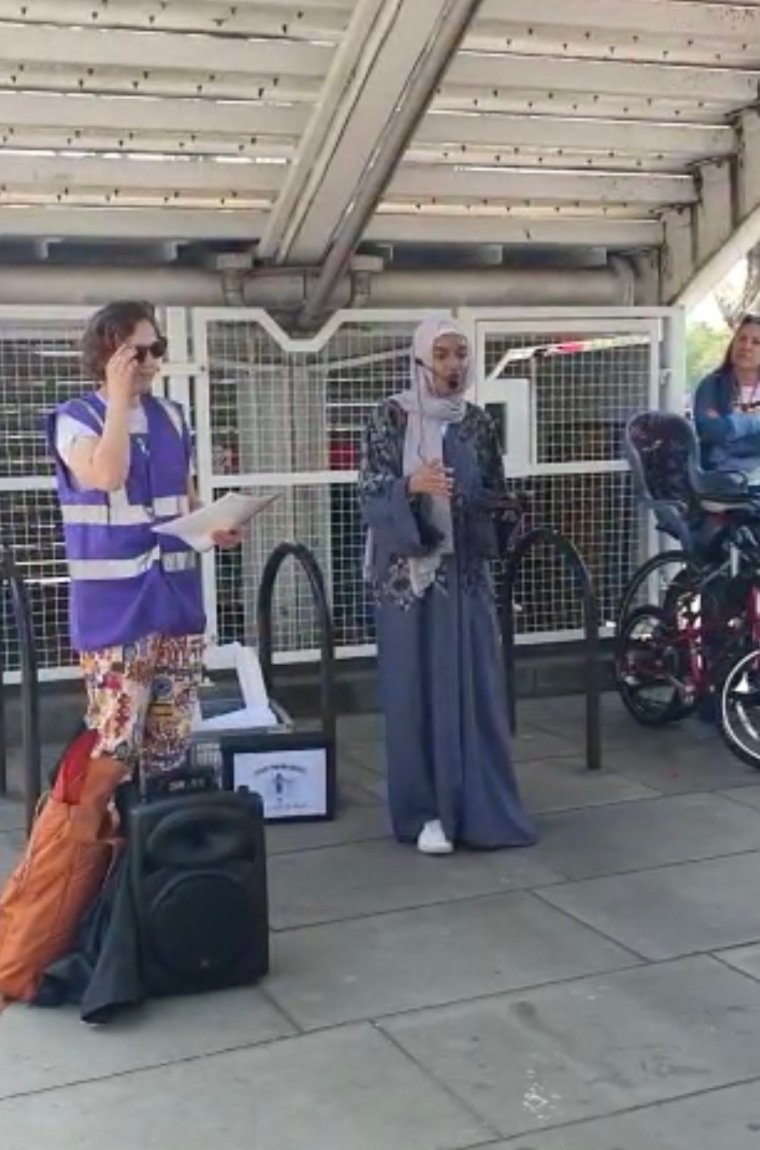When 15-year-old Sabiha Ali comes on her period, she has no issue asking dad Mohammed to pop to the shops to buy period products for her. The same can be said for her mum and sisters, who all believe periods are nothing to be ashamed of.
This should be the attitude in every household, Sabiha told i – but this isn’t the case for many of her friends from Asian cultures, who keep their periods hidden from male family members and treat them as something to be ashamed of.
“Periods are natural, and are actually something so precious and amazing because they are the source of new generations,” she said. “If we didn’t have periods, we wouldn’t have children.
“But in a lot of the Asian community, periods are treated as something that should be hidden or something to be ashamed of, and that’s so wrong.
“I have friends who have to hide it from their dads or brothers when they are on their period.”
Sabiha, who lives in Sheffield and is from a Pakistani Muslim family, told i that with menstruating girls and women not allowed to perform prayers or observe fasting during Ramadan, some of her friends even go as far as pretending they are going to pray to hide their period.
“Periods definitely shouldn’t be hidden from men,” Sabiha said. “Men need to know about periods because they may have daughters, or they probably have sisters. When we get upset hormonally during our periods, they need to know why and what they can do to help and they shouldn’t be ashamed to go out and buy pads or tampons for their daughters, sisters or wives.
“There can be complications with periods, but because periods themselves aren’t talked about openly enough in our culture, the complications aren’t talked about enough either. Girls may suffer without knowing what is wrong and it might have an impact on them later in life when they are older and want to have children.”
Sabiha is passionate about the issue of periods and wants to combat period inequality and shame, not just within her community, but also at schools where she is advocating for better access to period products for pupils.
The teenager has experienced challenges herself when trying to find pads in schools when she needs them, and she has now become a “period champion” for her peers and in providing period products to other pupils.
Sabiha has even helped a friend wash blood out of her skirt in the school toilets after she couldn’t find any period products in time.
“In our school, the period products are kept in the library,” she said. “When I was in lower school, they kept the pads in the toilets, but girls would rip them up or stick them to the wall so they moved them to the library.
“However, the issue with the way they are kept in the library is that you walk into the library and they are there, so when you take them, the entire library will see you getting them.
“Some of my friends feel embarrassed or uncomfortable about going to get period products from the library, but I know it’s nothing to be embarrassed about so I just fetch the pads for other pupils when they need them.
“My school is very diverse and girls from all different cultures are embarrassed about getting period products from the library, so I will get them for them.
“The thing that irritates me about them being in the library is that the library is on the second floor and we have two buildings, so it’s really inconvenient to go and get a pad when you suddenly come on your period and you feel like you might leak through.”

Sabiha also believes there is a lack of education and information about periods provided in schools – and she would particularly like to see awareness about how to use tampons as she says they are rarely used within the Asian community.
“With school, the last time I remember doing anything specifically on periods and the menstrual cycle was in Year 6. I don’t recall doing anything in secondary school, apart from a bit in Biology class,” said Sabiha.
“We have had demonstrations about how to put condoms on and stuff like that, but we have never been told how to use tampons. The only time I remember being told anything about tampons was when a teacher got a tampon in class and put it in water to show how it expands, but that was it. We were not taught how to put them in by anyone, especially at school.
“In our Asian community, I don’t think any of us use tampons, or if they do, it’s quite rare. My mum or me or my older sister have never used tampons as I wouldn’t know how to use them.
“I think they should teach this stuff to clear up misunderstandings and I also think there needs to be more awareness of tampons among Asian people – so many in the community think it’s wrong to use tampons, even though it’s not.”
Sabiha was asked to do a presentation at school on any topic of her choosing and she decided to talk about periods and the lack of access to products, as well as suggesting changes the school could make to make things better for girls.
She also took part in the recent Period Parade in London as part of Irise International, which campaigns for period equality. She joined other young activists and organisations to push for change to tackle period inequalities and shame.

Nur Ali, Sabiha’s mum, who is a community development worker, told i she is incredibly proud of her daughter’s work tackling period stigma.
“Periods are something girls and women naturally have, and there is no shame in them,” she said. “But in most Asian households, they are not spoken about and it is a very hidden issue and there is a lack of awareness and feeling of shame.
“Sabiha is trying to tackle that by speaking out about periods in her school, among her friends who are from different culture groups and within the community.
“She wants people to know that you should be able to talk about periods with everyone and that they shouldn’t be hidden from dads, or men in the family. There are so many myths surrounding periods and people in many Asian homes wrongly believe you shouldn’t talk about periods.
“My husband is very open minded and is the only man in a household of four women. My girls know they can call him whenever they’ve run out of period pads and he’ll go out and buy some more, even at midnight!”
She added: “It can be so hard to be outspoken about issues like periods, especially when you are Asian and she is encouraging a lot of her friends to do the same.”


